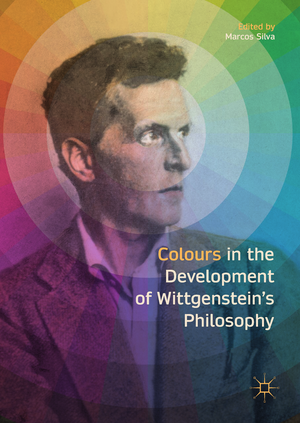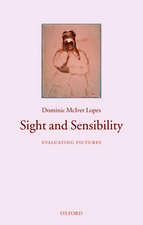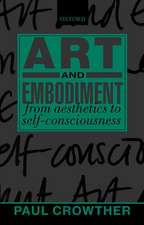Colours in the development of Wittgenstein’s Philosophy
Editat de Marcos Silvaen Limba Engleză Hardback – 11 aug 2017
| Toate formatele și edițiile | Preț | Express |
|---|---|---|
| Paperback (1) | 691.36 lei 38-44 zile | |
| Springer International Publishing – 7 aug 2018 | 691.36 lei 38-44 zile | |
| Hardback (1) | 733.78 lei 6-8 săpt. | |
| Springer International Publishing – 11 aug 2017 | 733.78 lei 6-8 săpt. |
Preț: 733.78 lei
Preț vechi: 894.85 lei
-18% Nou
Puncte Express: 1101
Preț estimativ în valută:
140.45€ • 152.61$ • 118.06£
140.45€ • 152.61$ • 118.06£
Carte tipărită la comandă
Livrare economică 22 aprilie-06 mai
Preluare comenzi: 021 569.72.76
Specificații
ISBN-13: 9783319569185
ISBN-10: 331956918X
Pagini: 398
Ilustrații: XV, 380 p. 5 illus.
Dimensiuni: 148 x 210 mm
Greutate: 0.62 kg
Ediția:1st ed. 2017
Editura: Springer International Publishing
Colecția Palgrave Macmillan
Locul publicării:Cham, Switzerland
ISBN-10: 331956918X
Pagini: 398
Ilustrații: XV, 380 p. 5 illus.
Dimensiuni: 148 x 210 mm
Greutate: 0.62 kg
Ediția:1st ed. 2017
Editura: Springer International Publishing
Colecția Palgrave Macmillan
Locul publicării:Cham, Switzerland
Cuprins
Chapter 1. Introduction; Marcos Silva.- Chapter 2. Visual Images, Colored Patches, and ‘Minima Visibilia’ ; Ludovic Soutif.- Chapter 3. Incompatible colours and the development of Wittgenstein's philosophy; Andrew Lugg.- Chapter 4. ‘Tractatus’ objects and the logic of color incompatibility; Dale Jacquette.- Chapter 5. What Does a Phenomenological Language Do?; Mauro Engelmann.- Chapter 6. Phenomenology as Logic of Content; Mihai Ometita.- Chapter 7. Visual space, colors and generality; Anderson Nakano.- Chapter 8. Wittgenstein on contradiction and contrariety; Marcos Silva.- Chapter 9. The grammar of colours advanced in Wittgenstein’ s Middle Period; Axel Barcelos & Salma Saab.- Chapter 10. Wittgenstein on Color; James M. Thompson.- Chapter 11. The Fate of Wittgenstein’s Phenomenology; João Vergílio G. Cuter.- Chapter 12. Wittgenstein on Colour and the Formation of Concepts; Frederik A. Gierlinger.- Chapter 13. Colours, Phenomelogy and Certainty; MarceloCarvalho.- Chapter 14 . The harmony of colour concepts; Ingolf Max.- Index.
Notă biografică
Marcos Silva is currently Associate Professor at the Federal University of Alagoas, Brazil. He has held research positions in Rio de Janeiro, Fortaleza and Leipzig and has presented his research throughout Europe. His research interests include the philosophy of logic, philosophy of language and Wittgenstein’s philosophy.
Textul de pe ultima copertă
This book presents and discusses the varying and seminal role which colour plays in the development of Wittgenstein’s philosophy. Having once said that “Colours spur us to philosophize”, the theme of colour was one to which Wittgenstein returned constantly throughout his career. Ranging from his Notebooks, 1914-1916 and the Tractatus Logico-Philosophicus to the posthumously published Remarks on Colours and On Certainty, this book explores how both his view of philosophical problems generally and his view on colours specifically changed considerably over time. Paying particular attention to his so-called intermediary period, it takes a case-based approach to the presentation of colour in texts from this period, from Some Remarks on Logical Form and Philosophical Remarks to his Big Typescript.
Caracteristici
Tracks the inception and evolution of Wittgenstein's thought on colour throughout his career Extends the discussion on the role of colour within philosophy through it's focused treatment Moves towards bridging the divide between analytic and continental philosophy in it's analysis of Wittgenstein's thought Includes supplementary material: sn.pub/extras




















